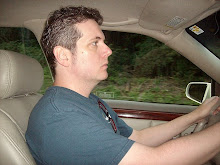Silent screen star Louise Brooks (1906-1985), long after she abandoned Hollywood, began writing essays about her acting experiences. In one of her essays dated 1977, she had this to say about fellow thespian Constance Bennett: "Yet beauty, great acting ability, and a lovely voice could not compensate for the lack of the one attribute without which the rest did not matter: she did not have that generosity, that love for her audience, which makes a true star."
That observation of one actor toward another has haunted me since the first time I read it, and, with my 26 years of community theater experience and informal / formal study of the subject, I shall attempt to explain why. Now, I don't pretend to believe that all actors pursue their craft with the intention of becoming rich and famous, though I suspect that motivation, either primarily or secondarily, either consciously or unconsciously, is usually considered by most who enter the field. What is perhaps more true is that there are, at the very least, two types of actors: those who wish to make a buck, and those who wish to pursue their craft from an almost scientific standpoint; in other words, for the sake of art. In either case, I think that having "that generosity," that love of one's audience, is crucial if one is to really blossom and embrace acting.
With that in mind, what I tend to see and infer locally - and even from afar - from the actions and demeanor of up-and-coming actors is a general demonstration of no generosity learned from their craft nor love displayed for their audience. These types tend, unfortunately, to wear their studies and experience as something to be envied, as something to place themselves on higher hallowed social ground. It further seems that these persons regard their non-thespian peers with disdain and, in some cases, direct mockery. There could be myriad reasons for this. For example, perhaps an actor is inherently shy, yet finds acting as an appropriate outlet for his innermost thoughts and feelings. This actor might easily be read by the public as being aloof. Or perhaps a good actor is wary of "putting herself out there" in the public eye, for fear of attracting various nutjobs and other merry, well-meaning - or dangerous - stalkers, and inadvertently brands herself as snobby or unappreciative. However, with these exceptions, I'm seeing something different. There is a general hubris connected with young actors, a covert yet clearly-communicated message of, "I am better than you. I have studied my craft, I have a degree, and I know more than you ever will."
I'm not suggesting that actors foolishly embrace everyone they encounter, though I can argue - even in today's paranoid climate -that Joan Crawford was on to something when she embraced her paparazzi, getting to know them by name, knowing their family histories, and even bestowing impromptu gifts upon them. In return, they revered her and even became protective of her when she was in public. This, I feel, speaks to the larger issue: as an actor, why not embrace everyone's differences and eccentricities? Why not try to empathize with a stranger's plight or joy in a situation? It's this kind of outlook, I feel, that can help an "educated" actor become a "great" actor.
Forgive me if I don't leave my callback number ;)
Wednesday, January 11, 2012
Tuesday, May 5, 2009
Ten Years Behind The Times
Blogger.com was apparently started in 1999. I've just now created an account. We'll see where this goes.
Subscribe to:
Comments (Atom)
